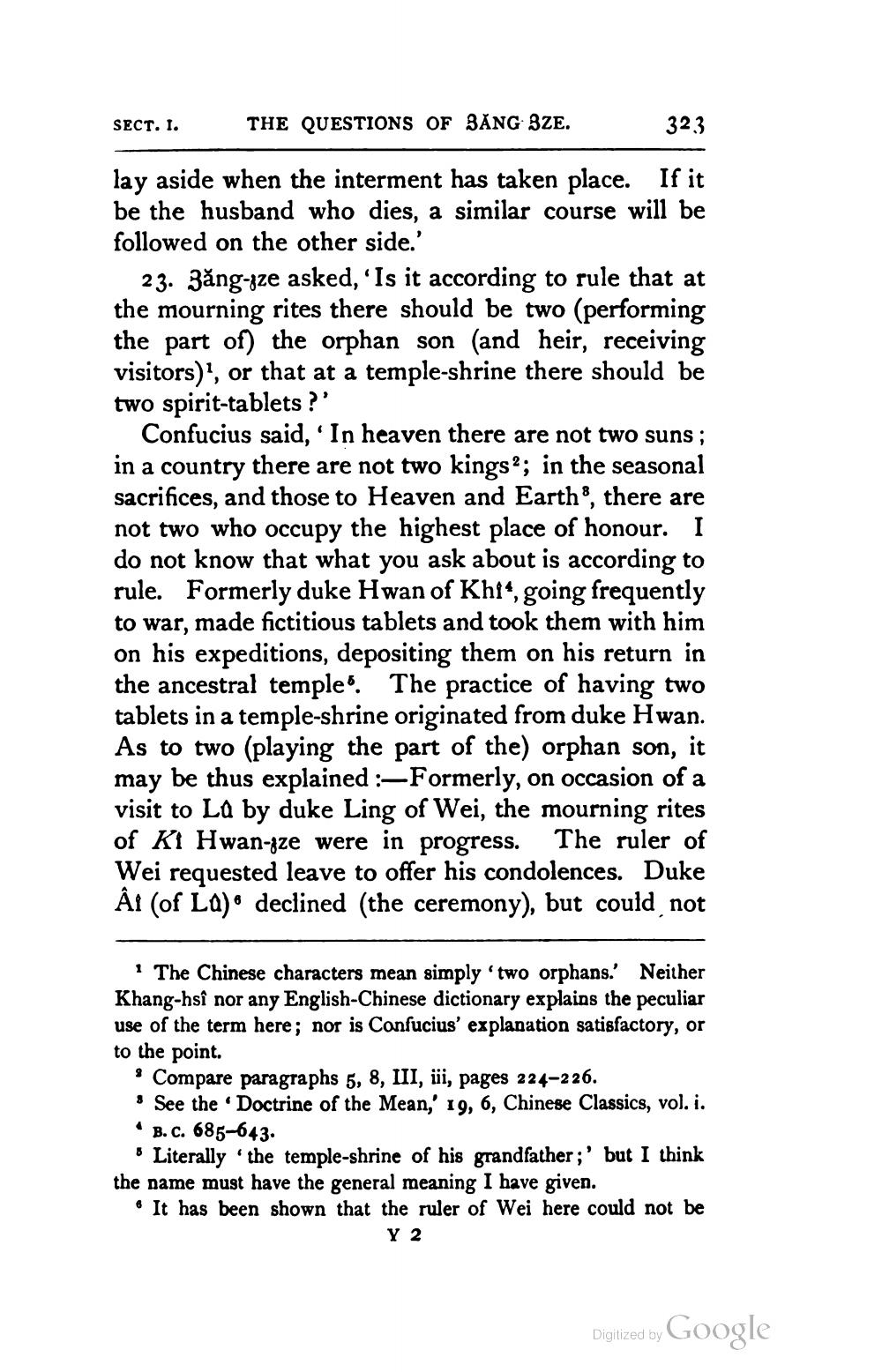________________
sect. I.
THE QUESTIONS OF BĂNG BZE.
323
lay aside when the interment has taken place. If it be the husband who dies, a similar course will be followed on the other side.'
23. 3ăng-gze asked, 'Is it according to rule that at the mourning rites there should be two (performing the part of) the orphan son (and heir, receiving visitors)', or that at a temple-shrine there should be two spirit-tablets ?'
Confucius said, 'In heaven there are not two suns ; in a country there are not two kingsa; in the seasonal sacrifices, and those to Heaven and Earth®, there are not two who occupy the highest place of honour. I do not know that what you ask about is according to rule. Formerly duke Hwan of Khia, going frequently to war, made fictitious tablets and took them with him on his expeditions, depositing them on his return in the ancestral temple. The practice of having two tablets in a temple-shrine originated from duke Hwan. As to two (playing the part of the) orphan son, it may be thus explained :-Formerly, on occasion of a visit to La by duke Ling of Wei, the mourning rites of Ki Hwan-gze were in progress. The ruler of Wei requested leave to offer his condolences. Duke Ai (of La)* declined (the ceremony), but could not
1 The Chinese characters mean simply 'two orphans. Neither Khang-hsî nor any English-Chinese dictionary explains the peculiar use of the term here; nor is Confucius' explanation satisfactory, or to the point.
Compare paragraphs 5, 8, III, iii, pages 224-226. * See the Doctrine of the Mean,' 19, 6, Chinese Classics, vol. i.
B. C. 685-643.
Literally the temple-shrine of his grandfather;' but I think the name must have the general meaning I have given.
. It has been shown that the ruler of Wei here could not be
Y
2
Digitized by Google




